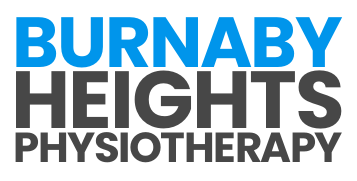
Understanding Acupuncture: Myths, Realities, and Scientific Evidence
June 29, 2025
Comparing Acupuncture and Dry Needling: Which One is Right For You?
July 29, 2025Physiotherapy is a vital tool for recovery and rehabilitation, helping individuals regain strength, mobility, and overall well-being after an injury or surgery. However, to maximize the benefits of physiotherapy, clients must take an active role in their recovery process. In this blog, we will explore a range of strategies and lifestyle adjustments that can support physiotherapy, from nutritional guidance to stress management techniques, ensuring a holistic approach to recovery and rehabilitation.
Lifestyle Changes That Help Support Physiotherapy
Lifestyle changes play a crucial role in enhancing the effectiveness of physiotherapy. By adopting healthy habits, people can create a supportive environment for recovery.
- Regular Exercise: Engaging in regular physical activity can improve flexibility and strength, which are essential for recovery. Tailor exercises to your abilities and follow your physiotherapist’s guidelines.
- Proper Posture: Maintaining good posture, both sitting and standing, can prevent additional strain on your body. This supports the therapeutic work done during physiotherapy sessions.
- Adequate Sleep: Quality sleep is vital for recovery as it allows the body to repair and regenerate tissues. Aim for 7-9 hours of sleep per night.
- Stress Management: Incorporate stress-reducing activities like meditation or yoga to maintain mental well-being, which can positively influence physical recovery.
- Avoid Smoking: Smoking can impair blood circulation and delay recovery. Quitting smoking can accelerate your recovery process.
- Limit Alcohol Consumption: Excessive alcohol can interfere with the body’s ability to absorb nutrients necessary for recovery.
Implementing these lifestyle changes can significantly enhance the outcomes of physiotherapy, ensuring a more efficient and successful recovery.
The Role of Nutrition and Hydration in Supporting Physiotherapy
Nutrition and hydration are fundamental components of any successful physiotherapy program. Consuming a balanced diet ensures that the body receives essential nutrients needed for tissue repair and muscle growth. Proteins are particularly important as they repair muscle fibres, while carbohydrates provide the energy required for physical activity. Additionally, healthy fats such as omega-3 fatty acids can reduce inflammation, promoting faster recovery.
Hydration is equally important as it facilitates the flow of nutrients and helps remove waste products from the body. Adequate water intake ensures that joints remain lubricated and muscles are less prone to cramps. By combining a nutritious diet with proper hydration, people can support their physiotherapy efforts, leading to improved recovery and performance.
Ergonomic Tips to Complement Physiotherapy Sessions
Ergonomics plays a crucial role in supporting physiotherapy progress by minimizing strain and promoting optimal body mechanics.
- Adjust Your Workstation: Ensure that your desk and chair are at the correct height to prevent slouching and strain on your back and neck.
- Use Supportive Seating: Invest in an ergonomic chair that provides lumbar support and encourages proper posture to prevent discomfort.
- Monitor Position: Keep your computer monitor at eye level to avoid neck strain. Adjust the screen so it is directly in front of you.
- Keyboard and Mouse Placement: Position your keyboard and mouse so that your elbows are at a 90-degree angle, reducing strain on your wrists and shoulders.
- Frequent Breaks: Take regular breaks to stretch and move around to prevent stiffness and maintain circulation.
- Foot Support: Use a footrest if your feet do not touch the ground when seated, to maintain proper alignment.
Incorporating these ergonomic practices into your daily routine can greatly support the progress achieved in physiotherapy, reducing the risk of injury and promoting overall well-being.
Maintaining Physiotherapy Progress: How Movement and Activity Help
Movement and activity are vital components of maintaining progress achieved through physiotherapy. Regular physical activity helps maintain muscle strength, flexibility, and endurance, which are key to preventing re-injury. Engaging in exercises recommended by a physiotherapist ensures that the body continues to adapt and improve over time. Movement also aids in circulation, which is essential for delivering nutrients to tissues and removing waste products.
Additionally, incorporating physical activity into daily routines fosters a sense of routine and discipline, which supports long-term health and well-being. By staying active, people can sustain the gains made during physiotherapy, ensuring lasting improvements in function and mobility.
The Importance of Sleep Quality for Recovery
Sleep is a critical yet often overlooked aspect of the recovery process. During sleep, the body undergoes restorative processes that are crucial for recovery, including muscle repair, protein synthesis, and the release of growth hormones. These processes are essential for rebuilding tissues that have been worked on during physiotherapy. Lack of sleep can lead to increased stress levels, reduced immune function, and slower recovery times, all of which can hinder the recovery process.
Furthermore, quality sleep improves mental health, reducing anxiety and depression, which can positively affect motivation and adherence to physiotherapy routines. Prioritizing sleep can therefore significantly enhance the outcomes of physiotherapy, leading to faster and more comprehensive recovery.
Do Home Remedies or Tools Help Extend the Benefits of Physiotherapy?
Incorporating home remedies and tools can be an effective way to complement physiotherapy and extend its benefits.
- Foam Rollers: These can be used for self-massage to alleviate muscle tightness and promote flexibility.
- Heat and Cold Therapy: Applying heat can relax muscles before exercises, while cold packs reduce inflammation after sessions.
- Resistance Bands: These provide a versatile way to continue strengthening exercises at home, maintaining muscle tone.
- Massage Tools: Handheld massagers or massage balls can provide relief from muscle soreness and improve circulation.
- Stretching Aids: Use of straps or blocks can assist in maintaining proper form while stretching, enhancing flexibility.
- Compression Garments: These can help in reducing swelling and improving blood flow in targeted areas.
Utilizing these tools alongside your physiotherapy sessions can optimize your recovery process, ensuring that the benefits of professional treatment are sustained.
Improving Physiotherapy Outcomes With Stress Management
Stress management is an integral part of optimizing physiotherapy outcomes. Stress can negatively affect the body’s ability to recover by increasing inflammation and weakening the immune system. Techniques such as mindfulness meditation, deep breathing exercises, and yoga can help reduce stress levels, promoting a more conducive environment for recovery.
Additionally, managing stress improves focus and motivation, allowing people to adhere more closely to their physiotherapy routines. By incorporating stress reduction strategies, clients can enhance their physical recovery, making physiotherapy sessions more effective and leading to better long-term health outcomes.
How to Track Your Progress Between Sessions
Monitoring your progress between physiotherapy sessions is key to understanding how well you are responding to treatment.
- Keep a Journal: Document your daily exercises, pain levels, and any new symptoms. This information can be invaluable for your physiotherapist.
- Use a Fitness Tracker: Wearable devices can track your activity levels, providing insights into your physical performance and recovery.
- Set Measurable Goals: Establish clear, achievable goals to work towards, and regularly assess how close you are to reaching them.
- Photographic Evidence: Take photos or videos of your movement and posture over time to visually assess improvements.
- Pain Scale: Regularly rate your pain on a scale from 1 to 10 to identify patterns and triggers that may need addressing.
- Feedback from Others: Ask family or friends to observe your movements and offer feedback on improvements or areas needing attention.
By systematically tracking these elements, you can provide your physiotherapist with useful insights, facilitating more personalized and effective treatment adjustments.
The Importance of Consistency When Following a Physiotherapy Plan
Consistency is a cornerstone of effective physiotherapy, as sustained efforts lead to cumulative benefits over time. Adhering to a consistent routine reinforces the rehabilitation work done during sessions, allowing for gradual improvement in strength, flexibility, and mobility. Regular practice helps the body adapt and respond positively to treatment, reducing the likelihood of setbacks or re-injury.
Consistency also fosters a sense of discipline and commitment, which is essential for long-term health and recovery. By maintaining a steady regimen, people can achieve their rehabilitation goals more efficiently, ensuring that progress is both measurable and sustainable.
Staying Motivated Throughout a Long Physiotherapy Plan: Essential Tips
Staying motivated during a lengthy physiotherapy plan can be challenging, but certain strategies can help maintain your focus and dedication.
- Set Short-Term Goals: Break down your overall recovery plan into smaller, manageable milestones to celebrate progress along the way.
- Track Progress: Regularly review your improvements, whether through journals, photos, or feedback from your physiotherapist, to stay encouraged.
- Visualize Success: Imagine the activities you’ll be able to enjoy once you achieve your rehabilitation goals, which can provide a motivational boost.
- Seek Support: Engage with family, friends, or support groups who understand your journey and can offer encouragement.
- Reward Yourself: Plan small rewards for achieving certain goals, which can provide positive reinforcement to keep you going.
- Stay Educated: Learn about your condition and the benefits of physiotherapy to understand the importance of each session and exercise.
By implementing these strategies, you can maintain a positive outlook and stay committed to your physiotherapy plan, ensuring the best possible outcomes.
What to Avoid After Physiotherapy Sessions
Post-physiotherapy care is essential to ensure that the benefits of the session are maintained and any risk of injury is minimized.
- Overexertion: Avoid any strenuous activities that could strain the muscles and joints that have just been treated. Stick to light activities as recommended by your physiotherapist.
- Ignoring Pain: Pay attention to your body. If you experience pain after your session, rest and consult with your physiotherapist.
- Prolonged Sitting or Standing: Remaining in one position for too long can undo the benefits of your session. Take breaks to move and stretch.
- Skipping Cool Downs: Always complete your physiotherapist-recommended cool-down exercises to prevent stiffness.
- Unhealthy Eating: Consuming processed foods high in sugar and fat can impede recovery. Opt for nutritious choices instead.
Following these precautions can help reinforce the progress made during your physiotherapy sessions, leading to better long-term outcomes.
Recover Faster, Recover Stronger
Supporting physiotherapy with intentional lifestyle changes, proper nutrition, stress management, and effective communication with your physiotherapist can significantly enhance recovery outcomes. These strategies not only aid in achieving rehabilitation goals but also promote long-term health and well-being.
For those seeking personalized physiotherapy guidance, Burnaby Heights Physiotherapy is here to help. Contact us today for comprehensive advice and tailored treatment plans to support your journey towards recovery and optimal health.






